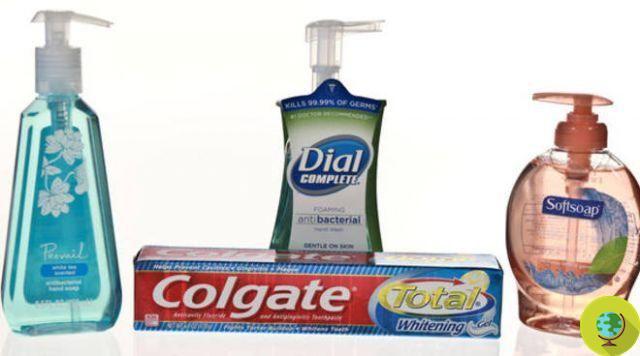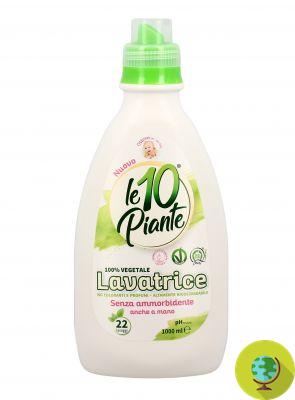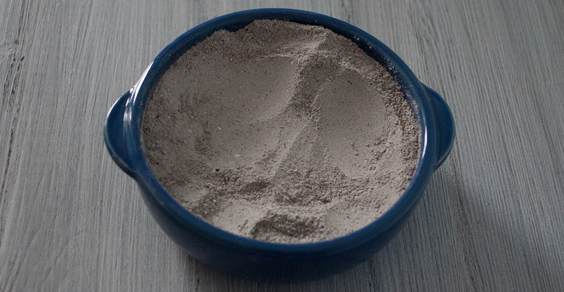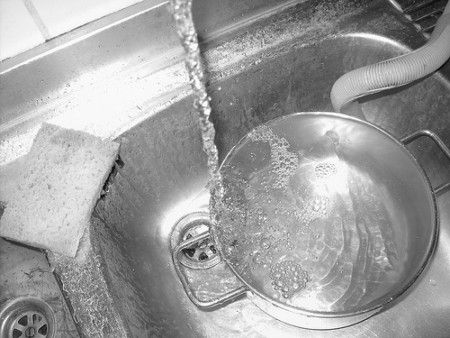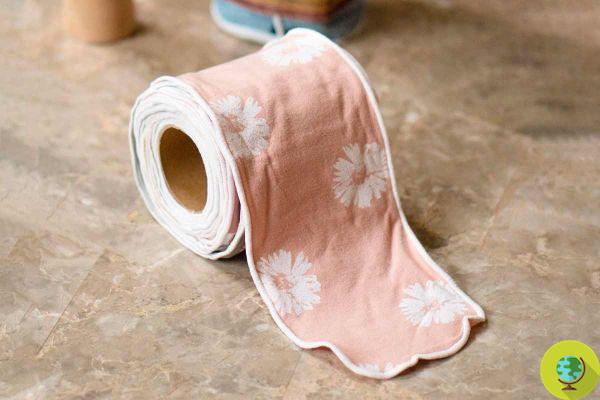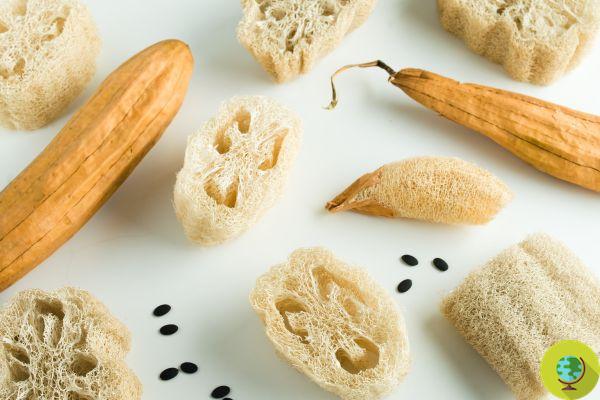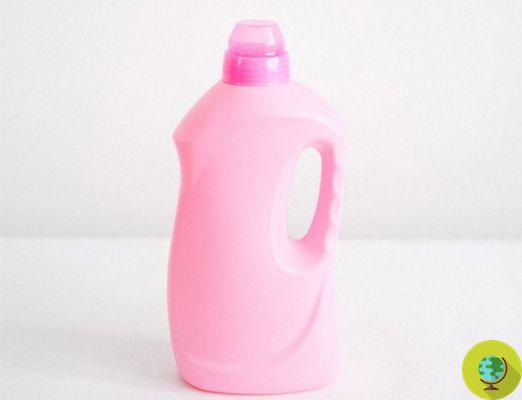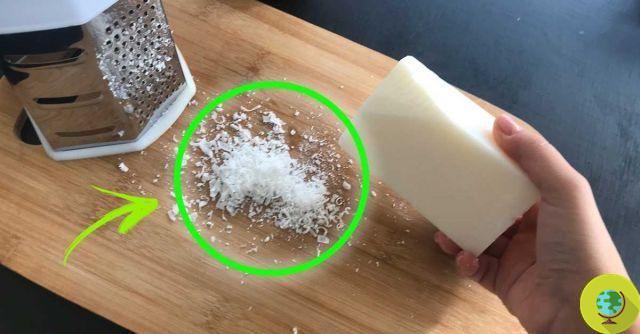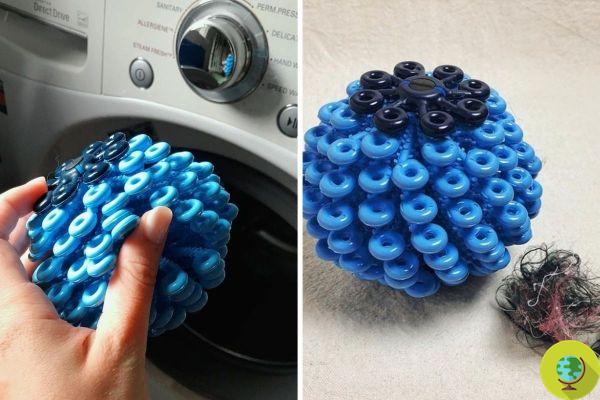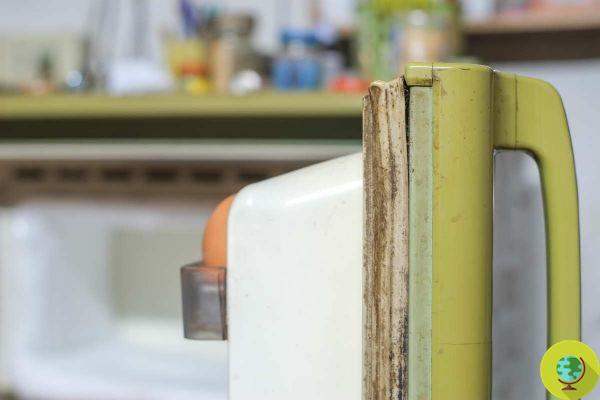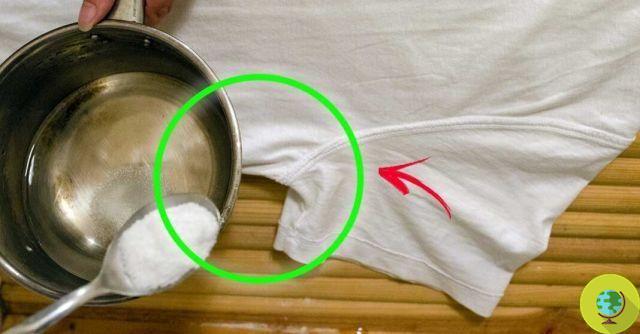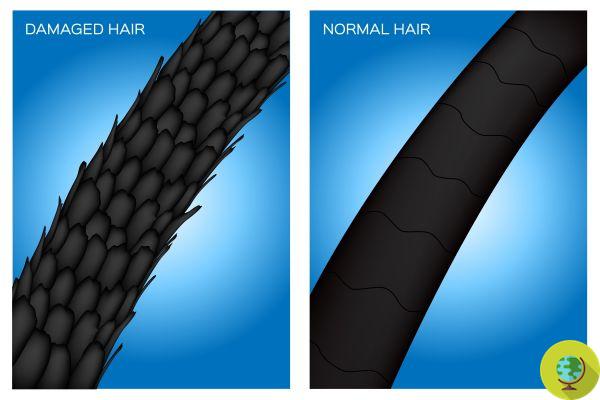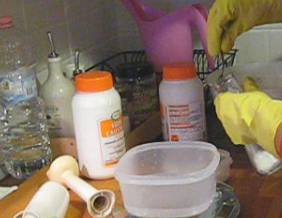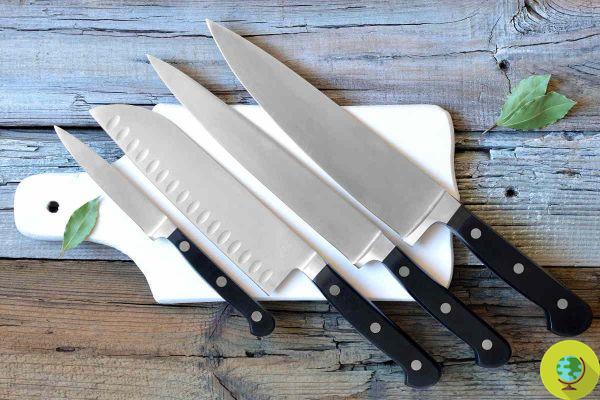
How to take care of the blades of our knives? And how to properly store knives in our kitchen?
He is about to end up run over, his mother saves himParing knife, for chefs or carvers, but also with serrated blade or "Santoku", and then with plastic, wood, nylon or fibrox handle: the variegated world of kitchen knives opens up a scenario unknown to most. Yet, in the kitchen, everything must be cut with its blade, under penalty of the quality of what we eat. Attention, however, first of all theirs is important cleaning and a correct one maintenance. But how to take care of the blades of our knives?
For most Sunday chefs, what matters are comfort, durability, ease of cleaning and, of course, the quality of the cut. Most of the time it is thestainless steel to satisfy all these needs, while offering excellent value for money.
In general, the handwash of the knife is always preferable to washing in the dishwasher, even if on the label you find it written that the blade is "dishwasher safe". In reality, the water and salt will not benefit the blade itself.
Also read: 10 things you shouldn't put in the dishwasher
The steel blade, although stainless, in fact, could corrode, as well as the rivets on many handles which are made of aluminum which tends to corrode. For this it is better to wash the knife by hand with a non-abrasive sponge, but if you really don't want to give up the dishwasher, take care to remove the knives as soon as you have finished washing them and dry them with a soft cloth.
Index
How to wash knives by hand
The first thing the experts will tell you is to first remove any remnants of lint, grease or dirt from the blades as needed. remove acid substances while using the knife, such as lemon juice.
Sodium bicarbonate
Friend of all housewives, rub the blades with a cotton swab dipped in a solution of baking soda; in this way, you will be able to remove the most superficial stains. To eliminate the most resistant stains, it is necessary to resort to a solution with 10% caustic soda.
White vinegar against rust
Acetic acid is often able to dissolve rust. Dampen a rag with vinegar and apply it directly to the stains, or immerse the knives in a bowl full of vinegar. We remind you that vinegar, if dispersed, is highly polluting. This substance is very polluting for the environment and particularly dangerous for the marine ecosystem.
Read also: Vinegar alcohol: what it is, when to use it and which one to choose
Lemon juice
Lemon juice can also eliminate rust from knives, better if used with salt or baking soda: sprinkle baking soda or salt on the blade and then scrub with a rag soaked in lemon juice. Let it act for a couple of minutes, then rinse (leave no traces of lemon) and dry immediately.
A potato
If you have old potatoes, know that they are able to remove rust from the metal because it contains oxalic acid! Put the knife blade in the tuber and leave it for a few hours. Then take out, rinse and dry with a clean rag.
No in the drawer!
When cutting, choose a wooden cutting board over plastic. It would be better to avoid putting the knives in a drawer, because the blades could be damaged by hitting other tools. The ideal would be to have a kitchen block or a magnetic knife bar instead.
Sharpening
The most attentive also have the good habit of periodically sharpening the blades. All you will need is a ceramic stone or a knife sharpener. And be careful!
Read also:
- Shoes stink, what to do? The most effective tricks and home remedies
- Remove blood stains with these home remedies (without chemicals)
- Remove grass stains: These home remedies will make your clothes look new
- Oil stains, the most effective remedies and tricks to remove them from clothes and floors




